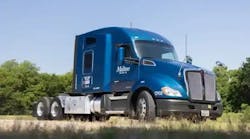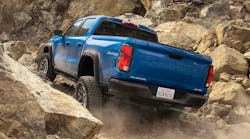During my sophomore year in college I had the opportunity to join several on-campus organizations. I must admit that in the beginning it was more about the free road trips for conventions and retreats. However, by the time I assumed multiple leadership positions as a senior, I began to realize the value in becoming involved. The lessons I learned in the classroom were important, but the education I received outside academics continues to pay dividends.
The spirit of volunteerism has enabled me to learn more about the tire and transportation industries than I could ever imagine. As an active member of the Technology and Maintenance Council (TMC), my education continues with every new Task Force and Recommended Practice. You'll see me at the Annual Meeting next month simply because I know there will be a new product or a new contact that will help me educate my customers, as well as the readers of Fleet Owner.
I'm also involved in the Motorist Assurance Program and the National Certification Commission so I can stay abreast of the newest developments in those areas. And I work for the Tire Industry Association (TIA), which is a similar organization led by a volunteer board of directors that includes tire dealers, retreaders, wholesalers, suppliers and recyclers.
If you have read this column for any length of time, I hope it's obvious that I try to look at most issues with a bottom-line approach. I've watched many different fleets throw money away over the past 20-plus years simply because they don't know the facts about tires. Regardless of where your trucks operate, tires are an unavoidable operating expense. But there are a number of different ways to minimize that expense without sacrificing performance or operational efficiency.
One of the best methods is to explore what works for others in the real world. To accomplish this, you'll need a venue where information is openly shared among competitors. Whether you're a public utility, private hauler or standard carrier, there is probably an association that represents your niche and provides ample opportunities for professional development.
Many of these groups encompass more than just tire maintenance. Insurance, regulatory concerns and labor issues are just a sample of the topics that might be addressed. Years ago, I conducted periodic training seminars for the local trucking maintenance council. On several occasions, the information that was shared helped fleet attendees improve their operations and lower tire costs.
Unfortunately, there are still too many decision-makers who view involvement in such organizations as a waste of money and resources. I can recall conversations with executives who thought that sending their employees to a conference or convention amounted to a company-sponsored vacation. Some even suggested those “perks” were reserved for top-level employees.
These were often the same people who complained the loudest about the fact that workers were unmotivated and unwilling to explore different solutions. Some would even point to the Internet and say that their employees could find anything they needed with the click of a mouse. While this may be true in some instances, there are at least an equal number of problems that are best solved with face-to-face networking.


